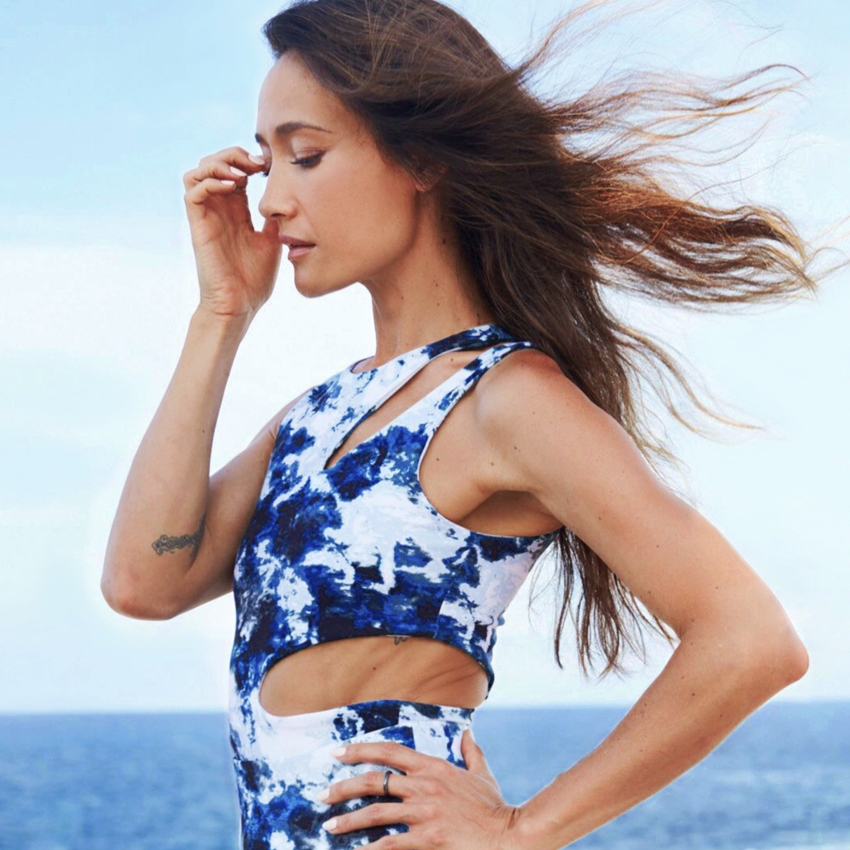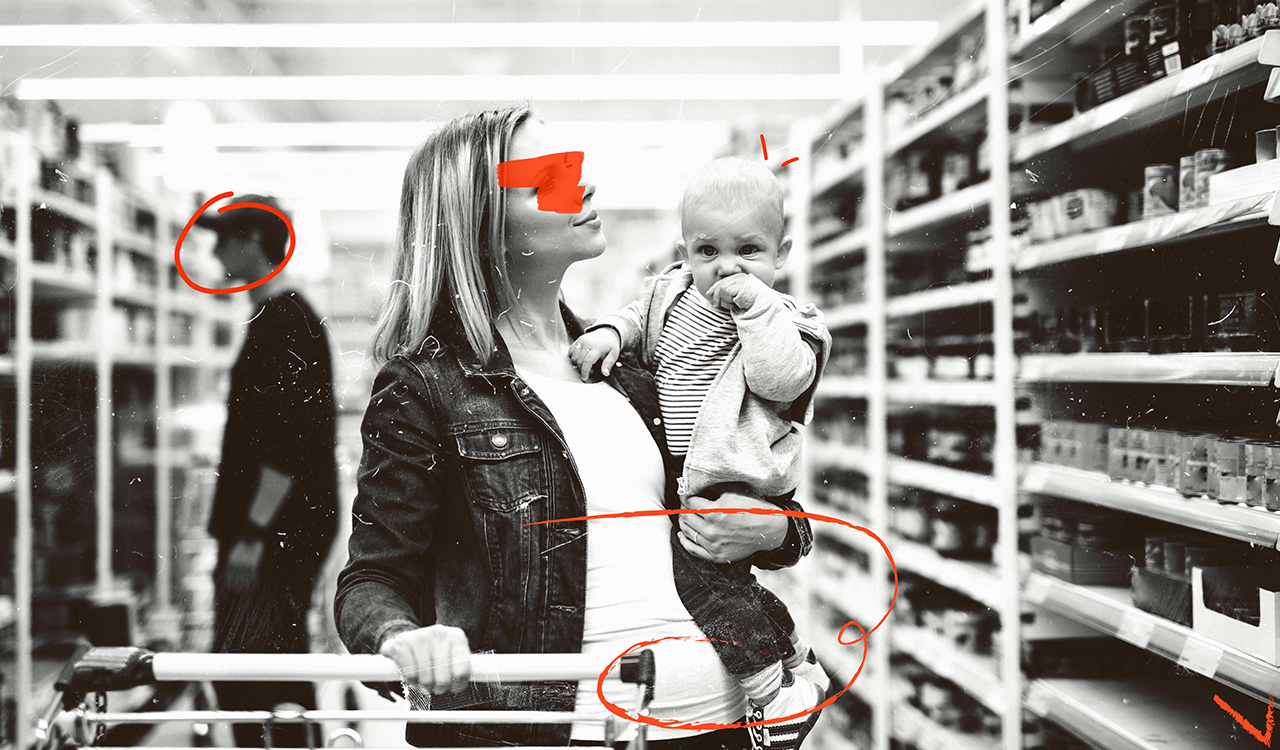Margaret Denise Quigley – best known by fans around the world as Maggie Q – has become one of Hollywood’s biggest names over the last decade and a half. The Hawaii native got her start in acting in the late 90s while living in East Asia when she began transitioning out of fashion modeling. Her athleticism, beauty, and raw acting talent caught the eye of Jackie Chan who saw her potential as an action star, and took it upon himself to mentor Q, schooling her on the finer points of martial arts made for entertainment. She recently connected with Robin Report Columnist Arick Wierson for a one-on-one chat where they talked in detail about her environmental and social activism at it relates to the fashion and garment industry as well as her own sustainable Qeep Up brand of athleticwear.
Q’s Journey to Becoming Activist and Actor
After her breakthrough 2006 performance in Mission Impossible III where she starred opposite Tom Cruise, Q went on to become one of the most highly sought-after names in Tinsel Town. Q has taken on leading roles in both the Die Hard franchise and the dystopian Divergent film series. More recently she starred in The Protégé alongside Samuel L. Jackson and Michael Keaton. Her success on TV, however, has been equally if not more impressive as her career on the Big Screen. In recent years Q has taken up a broad range of roles ranging from Nikita to Stalker to Designated Survivor to her current project on the Fox primetime comedy Pivoting.
“The U.S. tends to point the finger at other countries and highlight human rights abuses, but we also need to know when they happen in our own backyard. The challenges around ethical sourcing in fashion go hand in hand with environmental issues.” Maggie Q
With all this exposure, Maggie Q has created a powerful platform for influencing her legions of fans around the world, but unlike the majority of A-lister celebs that inhabit the rarified air of elite Hollywood, Q has made it her mission to leverage her celebrity to drive awareness about social and environmental issues, particularly as they relate to the garment, textile and fashion industries. Q, in fact, prefers to be known as an activist and actress – and preferably in that order.
“I think that for those of us who are fortunate enough to be in the situation where we have fans and ‘followers’ – we have to use our celebrity to effectuate change and make the world a better place,” Q told me during a recent chat over coffee on Zoom. “For me, my activism is what I am most proud of. I love my day job as an actress, but whether its advocating for animal rights or defending the rights of textile workers in Los Angeles who were having their wages essentially stolen during the pandemic or any of the other issues that I am involved in that touch on the environment and climate change – that is where I feel I am making a real difference.”
Q’s foray into activism actually predates her celebrity; a random encounter with a PETA advocate at a music concert in Hong Kong led her to reexamine her own way of living – it was a conversation that ended up changing her life and has led her to be one of Hollywood’s most outspoken voices regarding the abuses and inequities of the textile and fashion industries.
A Voice for Conscience and Consciousness
Today Q approaches climate change, textile and garment workers’ rights, and ethical sourcing in fashion and apparel with all the zeal and determination of her character Nikita – a rogue assassin who fights for justice. And core to her approach is leveraging her platform as one of Hollywood’s most well-known faces to mobilize consumer sentiment in furtherance of a more responsible approach to fashion. But Q is able to pull this effort off her advocacy efforts not with the overly pugnacious militancy of a Hollywood radical (think Jane Fonda getting arrested over and over at protests) but with the élan of a seasoned marketer.
“We have to meet people where they are,” observes Q. “As an activist you have to be a living example. Before I was ‘famous,’ I used to push things on people, but nobody cared too much about what I said – but they paid attention to how I lived. Now that I have this ‘celebrity,’ I am always thinking about how to maximize its impact for social and environmental good. And that all starts with living the life that I talk about.”
Apparel for Good
Today Q is involved in an array of entrepreneurial endeavors that include running the highly influential and fast-growing athleisure and swimwear brand Qeep Up, which serves as a sort of the connective fiber between her ambitions of promoting sustainable fashion with her activist goals of working to protect ocean wildlife by cleaning up ocean plastics. Each piece of the Qeep Up line is made of 100 percent recycled materials with a portion of each product donated to the Blue Sphere Foundation, an organization that defends marine species and habitats around the world. To source the fabrics used in her recycled ocean plastics, Q partnered with Repreve, the world’s largest supplier of recycled ocean fibers. At present, Repreve has reclaimed over 32 billion plastic bottles from the ocean.
Patagonia, Guess, Macy’s, JC Penney and many other globally-recognized brands work with Repreve to create products that meet the Global Recycled Standard. Qeep Up’s microfibers are sourced from waste collected along the American East Coast that is then processed into filaments at a Repreve facility in North Carolina before being sent a factory in Long Beach, California where yarns are then knitted into fabrics. Qeep Up products adhere to the most stringent regulatory environmental practices, including requiring the use of non-toxic chemicals in the dyes and employing energy-saving equipment.
Most celebrities who lend their names to products have nominal (if any) involvement in the design of the products that bear their name. Almost none dive deep into the supply chain and analyze the processes and equipment that is used to produce the end product. But that’s where Q is different. “Knowing what my products would look like and how they would feel and wear was critical – but the development process was equally essential,” Q told me. “My vision was to create a truly sustainable brand; not one that was ‘nominally’ sustainable.” Indeed, Maggie Q understands that ‘less unsustainable’ is not sustainable. And that is likely part of the reason Q isn’t just content to focus on impacting her own brand, but the industry as a whole. In recent years, Q has popped up at industry events in LA, New York and other fashion centers talking about ways to protect animal rights in the pursuit of fashion. In fact, along fellow A-listers Katie Holmes, Emma Roberts, and Meryl Streep, she has been a major proponent of the nascent but quickly growing vegan fashion trend.
Q has been amongst the most vocal high-profile voices speaking out against fast fashion’s wastefulness. “Its awful,” explains Q. “Its cheap clothing you will never wear more than a few times – if that. And then its headed to the landfill.” And she’s right – in fact a recent study conducted across several major industrialized economies found that most people wear less than 20 percent of the clothes they own. In the U.S., for example, Americans wore only 18 percent of the apparel in their closet last year. Even in countries like Norway, which is generally considered to be much more frugal and attuned to the perils of conspicuous consumption, the numbers are only a few points better than in the U.S.
As a result of this data and deep familiarity with the harsh impact that unworn or seldom-used clothing is having on the planet, Q has been one of Hollywood’s big proponents of upcycling apparel and vintage clothing. She has been vocal about the dangers posed by fast fashion and other issues that reveal the true environmental impact of cheap, seldom worn, and easily discarded apparel. “Once you see how the harm this industry is having on the planet – how can you not do something?” questions Q.
Social Change
Most recently, the power of Q’s activism in fashion was on full display at the height of the pandemic when she leaned into the issue of the estimated 45,000 garment workers in Los Angeles – nearly all women of color – who had suffered stolen wages as global demand for garments receded. The result of her efforts, working alongside organized labor groups, pressured state lawmakers to pass the California Garment Worker Protection Act, a robust piece of legislation that bans piecework – the practice that enabled garment manufacturers to pay workers on a per garment basis, resulting in a salary of less than $6 per hour.
“The U.S. tends to point the finger at other countries and highlight human rights abuses, but we also need to know when they happen in our own backyard,” Q told me. “The challenges around ethical sourcing in [fashion] go hand in hand with environmental issues.”
Hollywood – as well as fashion retail – would benefit from a lot more celebrities like Q who are willing to use their fame and stardom to help push change in an industry in which change is long overdue.




